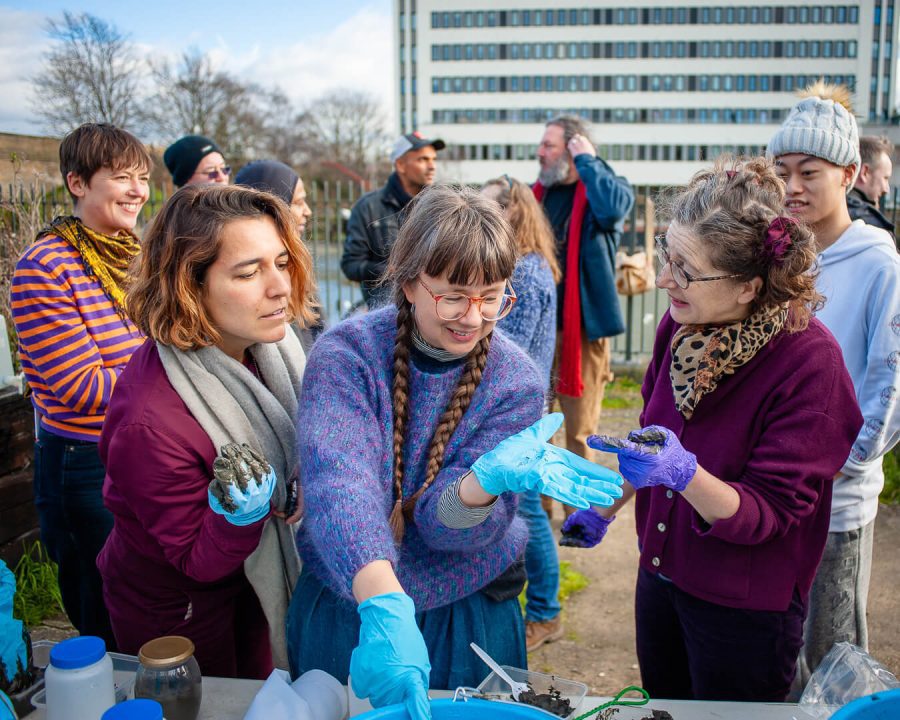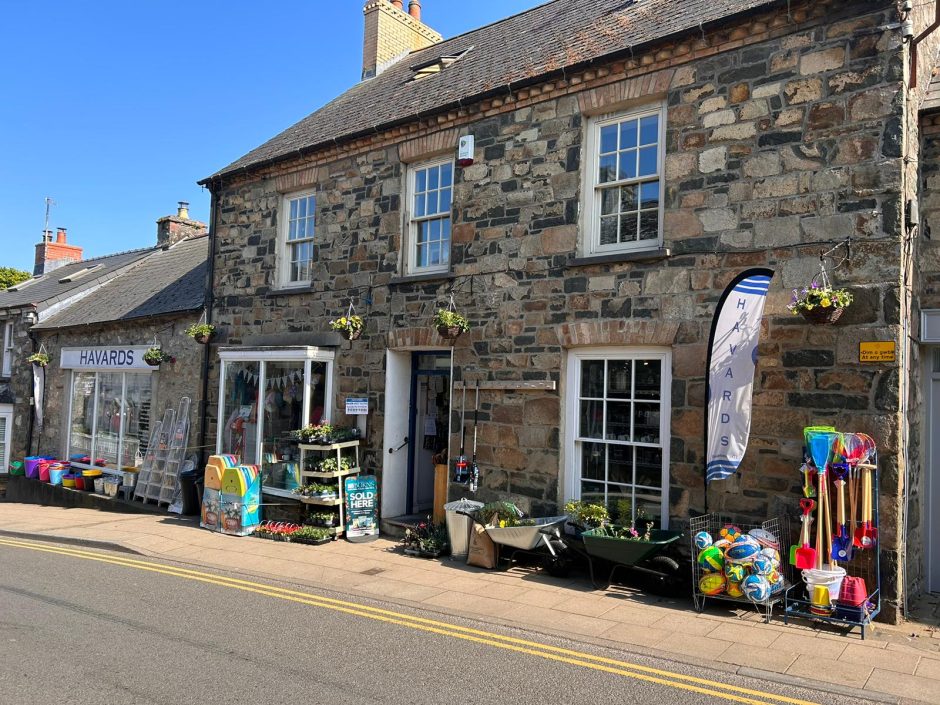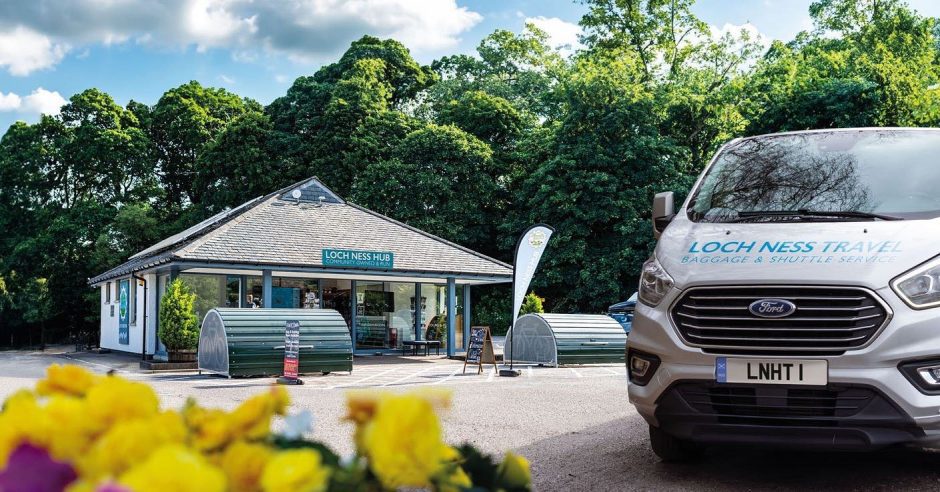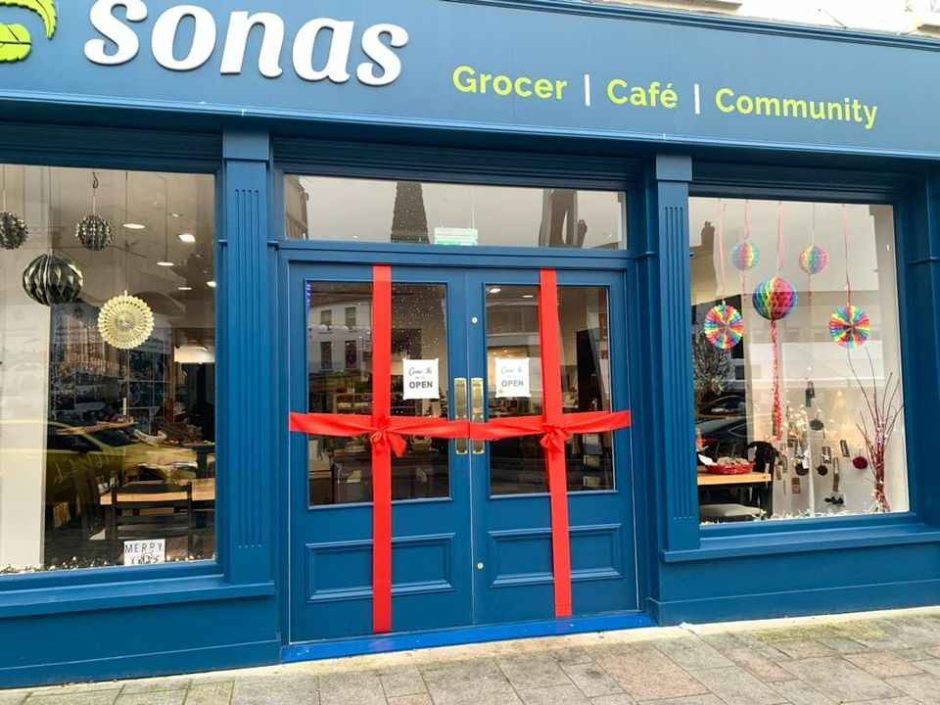International conflict and Covid continue to drive economic pressures such as the cost of living crisis and energy prices, bringing fears of a recession, but the UK’s co-op sector has reasons to be optimistic in the New Year.
A recent report from Co-operatives UK found that the number of independent co-ops in the UK rose 1.1% in 2022, in contrast with the number of businesses in general, which fell by 1.7%.
Member relations co-ordinator Gareth Wright highlights housing and energy as particularly strong sectors of the movement, in terms of numbers and activity, as well as new registrations coming through. This is in part due to the co-op sector responding to the needs of society, and communities feeling more empowered to take action, he says.
“I think there’s been a long slow burn of communities realising they can do things for themselves, whereas in the past, they may not have felt as empowered to be able to do so […] The tools are there, they are tried and tested.”
Fledgling co-ops now have access to a range of advice options, too, with Co-operatives UK receiving continued support from the Co-op Bank to help groups incorporate, initiatives such as the Barefoot Co-op Development programme training up the next generation of co-op development practitioners, and the continued hard work of well-established co-op development agencies.
“There’s a good network of development advisors out there now,” says Wright, adding that greater visibility of the co-op model across the UK is also playing a part.
“With every great news story and piece of press about a group that installs panels on a local school or community building, or takes over the village shop or pub, co-ops are becoming more visible. And they are good news stories, too. I think in general, we’re seeing a greater awareness of co-ops.”
So what are some of the new stories coming out of the four nations?
Related: Co-operators on 2023 – and the year ahead – in our annual Q&A
England
Co-operatives UK’s 2023 Co‑operative Economy Report provides a good overview of the co-operative sector’s important economic role and the need for additional support to accelerate the sector’s growth.
According to the report, the majority of the UK’s co-operatives are based in England, which is home to 6,188 co-op businesses with a combined 12.4 million members and a £37.1bn joint turnover, or 90% of the total turnover of UK co-ops. The number of co-ops went up 0.83% in the 2023 report, compared to the 2022 figures.
The majority of consumer retail co-operatives, including Co-op Group, are also based in England. The report also reveals that the retailers spearhead the year-on-year increase in memberships, driving numbers up by over 250,000.
Housing and energy are still very strong parts of the movement, not only in terms of their numbers and activity but also new registrations coming through. The report adds that the model helps groups of people to come together to meet common needs by starting a new housing co-op or using community shares to install solar panels or build a wind turbine.
Co-operative Futures, a Gloucester-based business development consultancy specialising in co-operative, mutual and community-led businesses, has been helping groups in England set up new co-ops since 2000.
They range from groups of people who have been involved in co-ops before to groups of people who know nothing about co-ops.
“We do very tailored business development support,” says Alice Hemming, co-operative development worker at Co-operative Futures. “It might be advising on different models of co-operative structure and governance, helping them understand what the different options are and helping them register.
“Or it might be advising around their work engaging with their members and the wider community, finding out what the needs are for that business, doing market research. It might be working with them to develop a business plan, look at funding options, and we also do a lot of work with groups doing financial modelling so that might be getting their forecasts in order so they know how much money they need, and looking at how they can access loans, community shares, that kind of thing.”
What makes these groups want to set up co-ops?
“I think that groups are interested in co-ops because they are aligned with the kind of politics and the values and principles of the co-operative movement so they see that there is a fairer and more just way to do business,” says Hemming.
Related: Co-operators mobilise to save Birmingham’s community spaces
Others feel that there’s a need for local community services or want to save community assets. “And the best way to do that is through a co-operative structure,” she adds. “There’s a belief that the community knows what is the best thing for themselves.”
One trend, says Hemming, has been groups coming together to acquire music venues such as Sister Midnight in Lewisham. Similar projects are under way in Bristol, Swansea and Oxford.
Related: Sister Midnight confirms agreement for use of Lewisham community-owned venue
Community-owned mooring or boaters’ co-ops are another trend that has emerged, as a response to higher mooring fees.
“In recent years, groups of boaters have formed co-ops to purchase or lease land to have permanent residential moorings with access to water, toilet facilities and electrical hookup,” says Hemming, whose partner lives on a boat. Examples include Surge in London and Calderdale Boat Club in Hebden Bridge.

She believes the key to generating interest in the co-operative movement is “having people in certain regions or cities or local areas who are spreading the word about the co-op option and offering advice, training, and education about co-ops”. She adds that people are more likely to be aware of the model if they live in an area where there are more co-ops.
Between July 2022 and June 2023, Hemming worked on a project funded by Oxford City Council to spread the word about co-ops. Over the course of the year, she worked with 33 groups, supporting them in the process of setting up or converting to the co-op model. Three new co-ops were set up under the project while four other existing organisations converted to the co-op model.
Some of the barriers faced by groups trying to set up co-ops include a lack of seed grant funding at the moment in the sector that co-ops are able to access.
“We’ve actually made really big advances in the sector using things like community shares and accessing loans from organisations like Co-op and Community Finance, but those are mostly for larger amounts of money,” says Hemming.
“What we’re missing is that smaller amount of seed funding, that’s maybe five grand or 10 grand, to get a group started and off the ground.”
Another issue is the fact that co-ops are often started by small groups of enthusiastic people but these struggle to get enough people together who can dedicate their time to the project.
Focusing too much on the practical aspects of setting up the co-op (registration, business planing, creating financial forecasts) can also mean that these groups fail to take into account some governance aspects and the different roles and dynamics within a co-op, warns Hemming.
Related: Community co-op initiatives in Plymouth secure grants from Shared Prosperity Fund
Wales
When it comes to new starts, Wales has seen the most activity out of the four nations, with 5.5 new co-ops per million people established between 2022 and 2023.
During the same period, the Welsh co-operative economy as a whole grew by 2.16% from 510 to 521 – more than twice as fast as England’s co-op sector, which grew by 0.83% in the same period.
One of the biggest drivers of this, says Glenn Bowen, director of enterprise at Welsh co-op support body Cwmpas, is the community shares movement.
“[It has been the] big push for us”, says Bowen, adding: “We’re kind of getting traction now. […] Once you get one or two rolling, you get more communities interested.”
Since 2020, Cwmpas has supported 18 groups in issuing community share offers to support their ventures.

One such venture is Havards community shop in Newport, Pembrokeshire, which became Britain’s first community owned hardware shop in November 2022.
Just over a year on, committee member Dr Brendan Blake describes the journey so far as “a fascinating challenge”. Some of these challenges include managing stock and dealing with the seasonal nature of the business, he says, also highlighting the pivotal role played by both staff and volunteers in keeping the shop running.
The main worry, according to Blake, was whether the shop would prove to be profitable in its first year, but the half-year accounts published in December have allayed this concern, with the business making £11,000 net profit.
When asked if he had any advice for new co-ops in Wales, Brendan said: “I think you really need people who are committed to roll their sleeves up, and make it happen.”
Since launching, Havards has lent support to other fledgling co-ops, including fellow hardware shop York Supplies in Birmingham and Clynfyw Care Farm, which recently transitioned to a community benefit society and is running a share offer until 13 January 2024.
Related: Community forms co-op to rescue much-loved Birmingham hardware store
Another notable example in Wales is enterprise co-op Menter Felinheli, which by the end of 2023 had raised over £120,000 in shares in an effort to buy the village’s local marina.
This would be the first community owned marina in Wales, and the second in the UK, with the first being in Portpatrick in Scotland.
A more well established sector on the Welsh community co-op scene, but one that is continuing to experience growth, is hospitality.
Cris Tomos, who works for Pembrokeshire Local Action Network for Enterprise and Development (Planed), reels off a list of Welsh pubs recently taken over by locals, including the Cross Inn, which opened in November 2023, and the Crymych Arms which opened the following month.
“People are seeing in communities in West Wales and North Wales that if you want things done, you’ve got to do it yourself,” says Tomos. He highlights the importance of support organisations such as Cwmpas and Planed in helping groups incorporate and issue share offers, as well as the UK government’s Community Ownership Fund, which the Cross Inn and the Crymych Arms both received grants from.
Bowen adds that the Community Ownership Fund has given the movement “extra momentum”.
Community land trusts (CLTs) are also on the rise in Wales, says Tomos, who predicts this trend will continue. In Pembrokeshire – in part due to local authority funding made available via a council tax premium paid on second homes in the county.
A recent example of this is Nolton and Roch CLT, which this year received £100,000 to purchase a plot of land in Roch. The CLT will partner with a local housing association to design, develop and build up to 20 affordable houses for local people.
The Welsh Labour & Co-operative government is also a source of support for the co-op sector, providing funding for Cwmpas to deliver business support as well as targeted grant programmes such as Perthyn. Meaning ‘belonging’ in Welsh, the fund supports co-operatives, social enterprises, and community-led housing projects as part of a broader aim to preserve the Welsh language.
The Senedd is also moving forward with a target to double the number of employee owned businesses in Wales by 2026 – a goal it is already two thirds of the way to reaching.
At the 2023 Wales Co-operative Party conference, co-operative MS and Welsh minister for the economy, Vaughan Gething, pledged £1.7m of funding a year for the next two years to help support businesses with the transition to employee ownership and social enterprise.
In addition to this, co-op MS and minister for education and Welsh language, Jeremy Miles, announced a one-year pilot project in collaboration with Cwmpas, to raise awareness and understanding of co-operatives in schools across Wales.
Speaking at the UK Co-operative Party conference later in the year, Gething said, “It really does help that over half of our Senedd Labour group are, like myself, Welsh Labour and Co-op candidates.”
The Welsh government is looking ahead to a UK general election, says Gething. “I’m really positive about the opportunity to work in the future with a UK Labour government that shares some of these same co-op values, [so] we can add to what our economy can deliver.”
For those like Tomos working on the ground, the next step is to network the new co-ops in Wales. He gives the example of the five community pubs now active where he works, who are looking at ways to share staff, stock and energy costs.
“The key now is networking and sharing best practice between pubs and shops and CLTs, so I hope that will be the next phase of development,” says Tomos.
“So it’s getting that right now, how the new co-operatives can share.”
Scotland
While the vast majority of the UK’s co-ops are based in England, co-operative development in the devolved nations is enhanced by more enabling government policy. In 2023 this took a huge leap forward in Scotland, with the Scottish government undertaking a major review of how to support co-operative growth, introducing a Community Wealth Building Bill.
In April, Co-operatives UK brought together representatives from the Scottish co-operative sector to discuss these opportunities and the potential of co-operatives in Scotland, and responded to Scottish government’s consultation on the matter with strong recommendations to explicitly include co-operatives in any legislation.
“Inclusive businesses such as co-operatives, employee ownership and social enterprises, must be involved in local community wealth building strategies and action plans,” wrote Co-operatives UK’s policy officer, James Wright, “particularly to inform action on the inclusive ownership and finance pillars.”
Like Wales, Scotland is enjoying quicker growth than England in terms of the number of co-operative businesses. In Scotland, the number of co-ops increased by 3.16% (602 to 621) between 2022 and 2023, with a total of 0.7 million members and a combined turnover of £1.8bn.
The largest in the region is Scotmid (with 158,155 members and a turnover of £403m), although agriculture remains the dominant sector, with agri co-ops making up the top five in terms of turnover. As in Wales, another sector seeing great innovation recently is hospitality and tourism.
One catalyst was the announcement in the summer that long-established Scottish online restaurant deals and reservation provider, 5pm, intended to overhaul its operating model and transition to a co-operative, creating what is thought to be the first platform of its type in the world. Owned by hospitality businesses, this co-op – Kooble – recently unveiled its platform at koobleit.com, citing plans “to shake up the online booking market”.
“I believe that a co-operative booking platform, owned by the industry itself, is the solution the tourism and hospitality sector has been waiting for,” said 5pm founder Ronnie Sommerville, speaking to Co-operative Development Scotland (CDS), which provided early support early on in the process.
“We’ve long recognised the issues faced by businesses in the booking market, with colossal international booking conglomerates charging exorbitant commissions. Our vision was to change this, creating a sustainable and attractive hospitality industry that benefits all.”

Set to launch in early 2024, Kooble is a non-profit co-operative, co-owned by operators within Scotland’s hospitality industry with no external shareholders. Profits will be directed back to hospitality businesses through a dividend.
“This unique model empowers businesses to reinvest a greater proportion of their profits, fostering growth, sustainability and fairness within the industry”, Sommerville said, adding that the launch “has been met with huge enthusiasm”, with more than 150 hospitality operators in Scotland already having pledged their support.
“Our vision is to spearhead a Scotland-wide movement that fosters a sustainable and thriving hospitality industry, benefiting all stakeholders […] It’s also important to highlight that an organisation like Kooble aligns with the Scottish government’s community wealth building programme. It exemplifies the principles of shared ownership, progressive procurement, and localised financial empowerment.”
Meanwhile in the Highlands, a local community came together after the Drumnadrochit Tourist Information Centre closed, using the opportunity to revitalise the building and develop new expanded services which could benefit both local residents and visitors.

Set up as a community benefit company, the project has been supported by development trust Glen Urquhart Rural Community Association (Gurca) and Soirbheas, a local development charity. The Loch Ness Hub is now a one-stop shop for information, tours and tickets for all things Glen Urquhart and Loch Ness, sells local crafts and gifts, and is collaborating with other local enterprises and organisations.
Through its Loch Ness Travel service, it also provides a shuttlebus and door-to-door bag transfer for walkers/cyclists enjoying the routes of the Great Glen Way, Loch Ness 360 and the Affric Kintail Way, and helps to promotes health walks and greener modes of transport, including an e-bike hire service.
“The best experiences come from the connections we make to people and places, says Russell Fraser, manager of the Loch Ness Hub. “The Hub will open up the bigger story of our area, helping tourists and locals discover and enjoy our history, heritage, landscape, local products and services.”
Northern Ireland
There are just over 250 co-ops in Northern Ireland, with 0.7 million members and a combined turnover of £1.3bn.
Two of the most prominent sectors are credit unions and agriculture; all of the top five co-ops in the region by turnover are in farming, with the largest being Dale Farm Co-operative Agriculture, with 1,468 members and a turnover of just under £592m.
But while these two stalwart sectors remain strong, there are also new and emerging co-ops in technology, housing and food. Much of this work is being spearheaded by Co-operative Alternatives, Northern Ireland’s leading co-operative development agency, which this year also hosted its first Young Co-operators Conference.
One of the speakers at the event was Dessie Donnelly, a founder member of Rabble Co-op, which provides specialised technological services to voluntary, public and private organisations fulfilling a social purpose.
Prior to co-founding Rabble (with Ruairi McCann), Donnelly was involved with Participation and the Practice of Rights (PPR), a small human rights NGO which aims to turn international human rights standards into grassroots tools for economic, social and environmental change.
“As an NGO, [PPR] felt, as everyone else does, the pull and the need to use tech in everyday activity,” he says. “But when you start to look at this in any degree of detail, you realise the platforms and the software you’re using do not align with the ethos of the work you’re doing, in terms of privacy, data, autonomy and the like.
“Organisations are doing all this ethical stuff, and then suddenly we’re all using big corporate platforms to do our work on a daily basis […] Our activism is being shaped by the platforms that we’re told that we have to be on [and] I was very uncomfortable with this.
“Tech should be a source of creativity, freedom and autonomy and free you up to be more creative with your activism. But instead you’re taught to be a consumer of tech.”
Both Donnelly and McCann changed careers, looking at developing, programming and coding.
“There are an awful lot of job opportunities out there [in tech],” says McCann. “I think it’s very easy to quickly get sucked into high salary roles in a corporate environment where job satisfaction – at least job satisfaction in terms of whether or not you’re pleased with what you’re actually contributing to – isn’t always guaranteed.
“These were the ideas that were going on our head and it seemed like setting up a co op was an obvious way to get ourselves into the situation we wanted.”
Today Rabble Co-op provides specialised technological services to voluntary, public and private organisations fulfilling a social purpose, and also promotes the use of technology which respects, protects and progresses fundamental human rights.

Another sector seeing new co-ops emerging is food – both growing (on a smaller scale than the region’s large agri co-ops) and retailing. The relatively young Jubilee Community Farm Co-op, the Good to Grow Co-op and Belfast Food Co-op are all thriving – as is Sonas, a new co-operative grocery that has just opened its doors in Lisburn, Northern Ireland.
The store, at 35-37 Market Square, also has a cafe and is the latest business to launch after receiving funds through the Urban Investment Fund, operated by Lisburn and Castlereagh City Council.
“We’re not just another run-of-the-mill retailer,” says Sonas co-founder Julie Hoey.
“We’re redefining the local grocery store experience where we ditch the plastic. We’re all about valuing our customers and sharing a commitment to protect people, place, and planet.”
Commitment to sustainability “drives every decision we make,” she adds. “We’re big on refillable and packaging-free products. You can fill up your own containers or borrow one from us. Say goodbye to overbuying and wastefulness – get exactly what you need, save some cash, and enjoy better, tastier food.”

